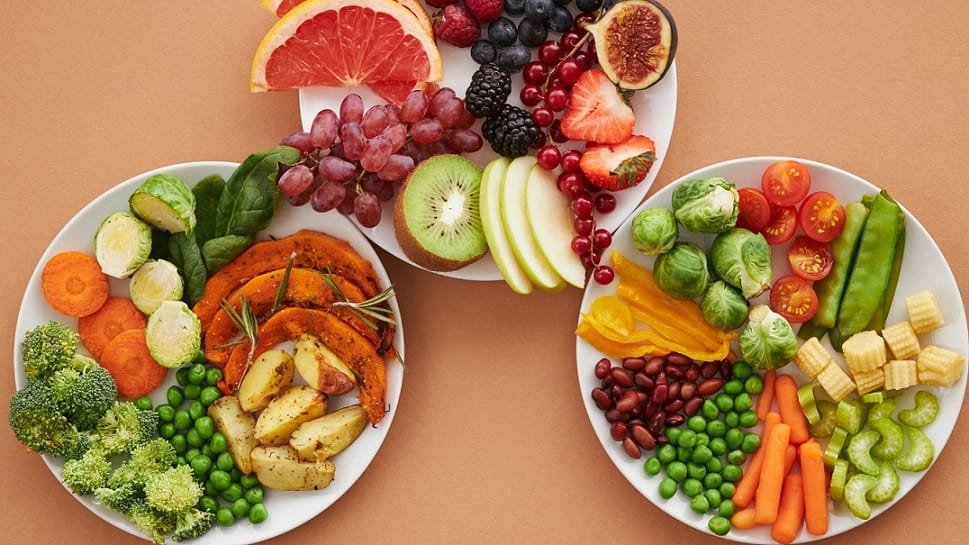Plant-Based Eating: Benefits and Challenges
In recent years, plant-based eating has surged in popularity, with many individuals recognizing the benefits of a diet primarily consisting of fruits, vegetables, legumes, whole grains, nuts, and seeds. For women, adopting a plant-based lifestyle can offer numerous health advantages, but it also comes with its own set of challenges. Here we explore the benefits and hurdles of plant-based eating specifically for women, offering insights on how to navigate this dietary choice.
Understanding Plant-Based Eating
At its core, plant-based eating focuses on incorporating more whole, minimally processed foods derived from plants. While it does not strictly eliminate animal products, many individuals who adopt this lifestyle significantly reduce their intake. Research suggests that a plant-based diet can promote health, improve mood, and support weight management, making it particularly appealing for women.
Benefits of Plant-Based Eating for Women
-
Nutritional Benefits
A well-planned plant-based diet can provide numerous essential nutrients beneficial for women’s health:
- High in Fiber: Plant-based foods are rich in dietary fiber, which aids digestion, supports gut health, and helps maintain a healthy weight. Vitamins and Minerals: Fruits and vegetables are abundant in vitamins (like vitamin C and folate) and minerals (like potassium and magnesium) that are essential for overall health. These nutrients play critical roles in functions such as immune health, bone density, and energy metabolism.
- Antioxidants: Plant-based diets are typically high in antioxidants, which help combat oxidative stress and inflammation, potentially reducing the risk of chronic diseases.
-
Hormonal Balance
For many women, hormonal balance is crucial for overall health. A plant-based diet can positively influence hormone regulation:
- Healthy Fats: Incorporating sources of healthy fats, such as avocados, nuts, and seeds, can support hormonal health by promoting proper hormone production.
-
Weight Management
Many women seek to manage their weight effectively, and a plant-based diet can support this goal. Plant foods are generally lower in calories and higher in nutrients, making it easier to consume fewer calories while still feeling satisfied. Additionally, the high fiber content helps regulate appetite and reduce cravings.
Challenges of Plant-Based Eating for Women
While the benefits of a plant-based diet are compelling, there are challenges that women may face when making the transition:
-
Nutritional Deficiencies
One of the primary concerns about adopting a plant-based diet is the risk of nutritional deficiencies:
- Vitamin B12: This vitamin is predominantly found in animal products, making it crucial for women on a plant-based diet to consider fortified foods or supplements to prevent deficiency.
- Iron: Plant-based sources of iron (like beans and spinach) contain non-heme iron, which is less easily absorbed by the body compared to heme iron found in animal products. Women should pair iron-rich foods with vitamin C sources (like citrus fruits) to enhance absorption.
- Calcium and Vitamin D: Essential for bone health, these nutrients are often found in dairy products. Women should seek plant-based sources of calcium (like fortified plant milks, leafy greens, and tofu) and consider vitamin D supplementation, especially in areas with limited sunlight.
-
Social and Cultural Challenges
Transitioning to a plant-based diet can pose social and cultural challenges:
- Dining Out: Finding suitable options in restaurants can be difficult, especially in areas where plant-based options are limited. Women may need to research menus ahead of time or suggest restaurants that offer diverse plant-based choices.
- Cultural Norms: In Pakistan, mostly meals center around meat or dairy, which can create social pressure or feelings of isolation for women trying to adopt a plant-based lifestyle.
-
Meal Planning and Preparation
Adopting a plant-based diet often requires more effort in meal planning and preparation:
- Cooking Skills: Women may need to enhance their cooking skills to prepare a variety of plant-based meals. This can involve learning new recipes and techniques, which may feel overwhelming initially.
- Time Commitment: Preparing plant-based meals from scratch can be time-consuming, particularly for those balancing work, family, and other commitments. Meal prepping and batch cooking can help alleviate this challenge.
Strategies for Successful Plant-Based Eating
To navigate the benefits and challenges of plant-based eating, women can implement several strategies:
-
Education and Research
Understanding the nutritional aspects of a plant-based diet is essential. Women should educate themselves about nutrient sources and meal planning. Numerous resources, including cookbooks and websites can provide valuable information.
-
Gradual Transition
For those new to plant-based eating, a gradual transition can make the process more manageable. Start by incorporating more plant-based meals into the week while slowly reducing animal products. This approach can help ease the adjustment and make it less overwhelming.
-
Community Support
Joining a community of like-minded individuals can provide support and encouragement. Whether through online forums, local meet-ups, or social media groups, connecting with others on a similar journey can offer motivation and share resources.
-
Focus on Variety
A key to enjoying a plant-based diet is incorporating a wide variety of foods. Experiment with different fruits, vegetables, grains, and legumes to keep meals exciting and nutritionally balanced.
-
Meal Prep and Planning
Investing time in meal prep can save time during the week and ensure that healthy options are readily available. Preparing batches of grains, beans, and roasted vegetables can make it easier to assemble quick and nutritious meals.
Conclusion: Plant-Based Eating Benefits and Challenges
Plant-based eating offers a myriad of benefits for women, from improved nutrition and hormonal balance to weight management. However, it also presents challenges that require thoughtful consideration and planning. By embracing education, community support, and practical strategies, women can successfully navigate the transition to a plant-based lifestyle, ultimately reaping the rewards of improved health and vitality.
Whether you’re fully committed to a plant-based diet or simply looking to incorporate more plant-based meals into your routine, the journey can be both fulfilling and transformative.
Explore the benefits and challenges of plant-based eating for women. Learn how to navigate nutritional needs, meal planning, and social dynamics effectively




